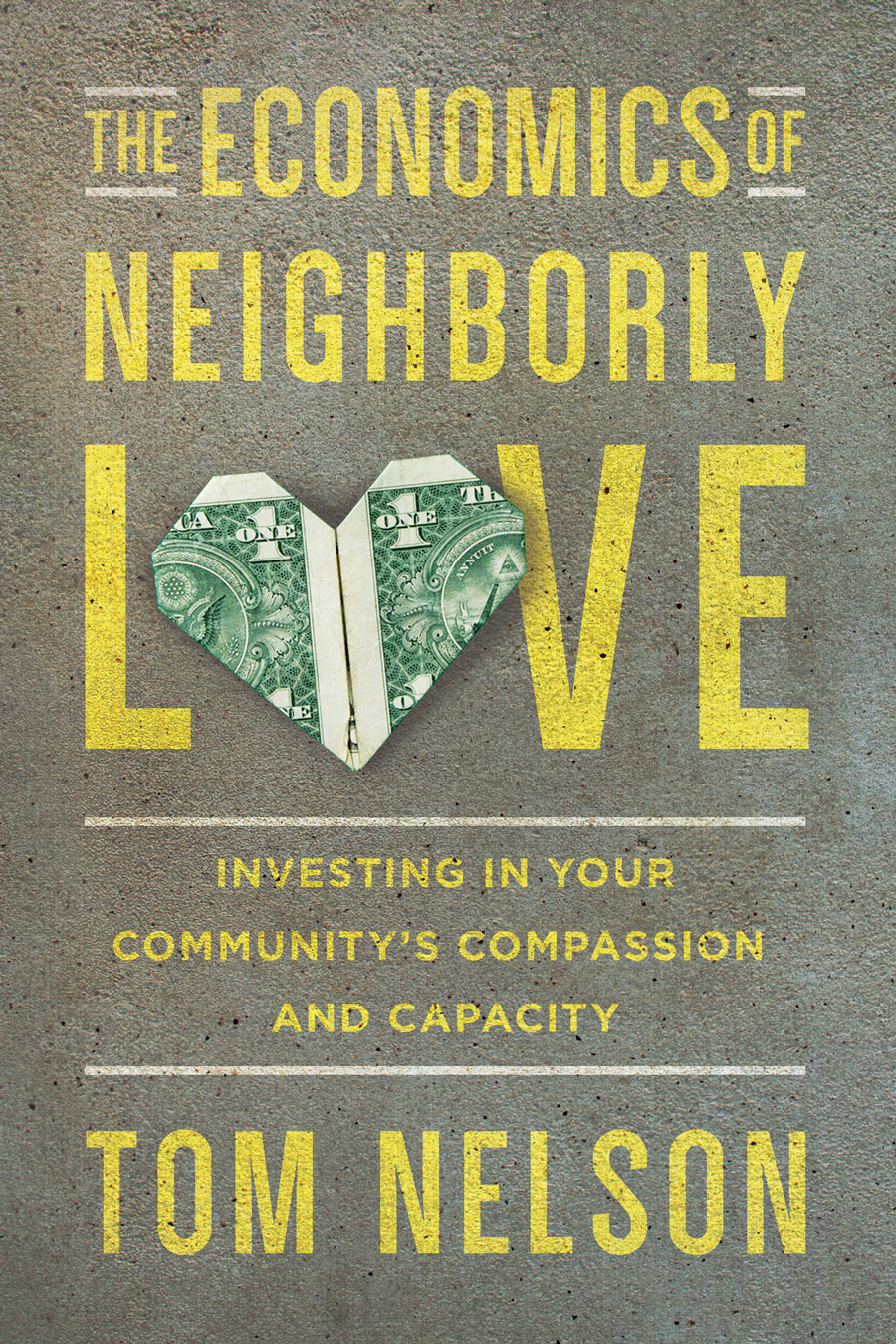 As a child growing up in rural poverty, Tom Nelson was constantly confronted by material lack and the social shame that sometimes comes with it, instilling an acute sense that economics mattered. Yet years later, as a seminary student hoping to become a pastor, he quickly lost sight of that basic intuition, taking a dualistic approach to “full-time ministry” that relegated economic life to the sidelines.
As a child growing up in rural poverty, Tom Nelson was constantly confronted by material lack and the social shame that sometimes comes with it, instilling an acute sense that economics mattered. Yet years later, as a seminary student hoping to become a pastor, he quickly lost sight of that basic intuition, taking a dualistic approach to “full-time ministry” that relegated economic life to the sidelines.
“Economics was for economists; theology was for pastors. There were no points of intersection — or so I believed,” Nelson recalls in his new book. “It wasn’t until I’d served for a few years in pastoral ministry that the burning questions of my childhood revisited me. How did Christian faith speak meaningfully to everyday life? What did it have to say about work and economics? I needed answers.”
In search of those answers, Nelson began a years-long journey of uncovering what it meant to bridge the “Sunday-to-Monday” gap from a pastoral perspective. Now, as a former pastor of 30 years and current president of the Made to Flourish network, Nelson is passionate about sharing his experiences and helping others in the church avoid similar pitfalls.
In The Economics of Neighborly Love, he does exactly that, offering a range of first-hand examples and pastoral insights on what it means to live faithfully as a Christian in the economic order. Weaving together Christian theologians from Martin Luther to Dallas Willard and N.T. Wright and economic thinkers from Adam Smith to Hernando de Soto and Dierdre McCloskey, Nelson offers a rare, well-rounded perspective that fuses the heart and mission of the Gospel with pastoral experience and practical economic wisdom.
As the title suggests, Nelson believes that a Christian approach to economics begins with a basic orientation around loving and serving our neighbors, proceeding with a concern for practical action. “Compassion needs capacity if we are to care well for our neighbors,” he writes, and that capacity is often found through economic exchange. “The gospel compels us to live in such a God-honoring way that we do honest work, make an honest profit, and cultivate economic capacity to serve others and help meet their economic needs,” he continues. “Our diligent work creates economic value, and economic value leads to economic capacity for living generously.”
The local church plays a critical role in cultivating that sort of capacity, yet for far too long, pastors have tended to think and talk about the economic gifts of congregants only as it relates to offering buckets or workplace evangelism or positions on intrachurch business and finance committees.
Walking through a wide range of topics — from lessons in basic economics to contextual discussions about the modern economy to explorations of poverty alleviation, charity, and theology of work — Nelson demonstrates that the people of God have far more to say and far more to offer when it comes to our role in the economic order:
What if these gifted servants of God [i.e. everyday congregants] were released to put more of their energy into what they do best—creating jobs and building economic capacity in our local and global economies? What if, as a part of our local church strategies, we would seek to stoke the fires of entrepreneurship and set targets for a specific number of good jobs created each year? I would like to see us celebrate not only the missionaries we send around the globe but also the jobs we create around the world. Let’s celebrate with the same enthusiasm the formation of new for-profit businesses as we do the formation of new nonprofit organizations. What if the church we have been called to serve would invest more resources in creating sustainable, tax-generating, charity-donating jobs? How would this initiative ignite the imagination and passions of the business domain within the church?
Local churches and church leaders are not only seeking ways to build capacity, they are also increasingly mapping out their present capacity to extend neighborly love to their communities. It is crucial to see the local church not only as a dynamic organism but also as a stable, well-managed institution that maintains a faithful presence in a community over the long haul.
If more churches were to more fully recognize their role in spurring and encouraging economic action, what might we see across everyday economic life? If more of us were able to connect the dots between compassion and creative service and economics, what sort of transformation might we see?
“As God’s new creation community, the local church must not merely embody compassion for the world but also play a vital role in building capacity for the world,” Nelson concludes. “This means we must bring our Christian faith, our work, and our economics together with a wise and integral approach…If we bring both greater compassion and increased capacity to the world, the local church will once again exemplify a true neighborly love and advance our gospel mission.”

